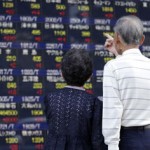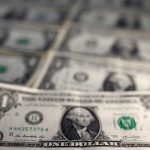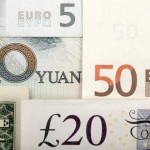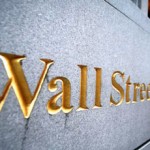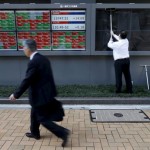Yen Fell 0.1 Percent, Euro Was Steady, Pound Rose; Chinese shares declined
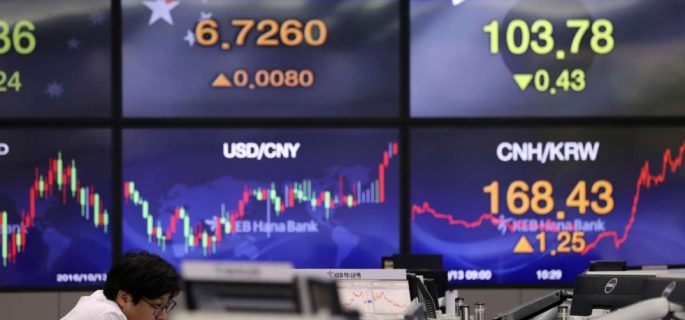
Chinese shares declined after a surprise hike in short-term interest rates by China’s central bank, though there was little impact more broadly in Asia as investors digested the Federal Reserve’s latest rate increase of its own, and an updated economic outlook.
China’s domestic equity markets were lower and Hong Kong’s Hang Seng Index fell. Japanese equities dipped and South Korea’s gained. The dollar was flat after sliding yesterday along with U.S. Treasury yields in the wake of the Fed keeping 2018 monetary-tightening plans as is despite boosting its growth projection. The Australian dollar hit a five-week high after better-than-expected jobs figures.
Even though the Fed raised its benchmark rate by a quarter percentage point to a target range of 1.25 percent to 1.5 percent and lifted its estimate for growth next year to 2.5 percent from 2.1 percent, it still didn’t see inflation accelerating.
“Markets are generally interpreting the meeting as a dovish hike,” said Marvin Loh, senior global market strategist at Bank of New York Mellon Corp. in Boston, said of the Fed. “The improved view in 2018 may be driven by tax reform, which will not have a long-lasting impact.”
Still to come Thursday, the European Central Bank is expected to reveal details of plans to taper asset purchases. Comments on the outlook for 2018 will be the focus for investors as they weigh the impact of coming policy normalization on global asset prices.
The People’s Bank of China unveiled a five basis-point boost to some reverse-repurchase rates, minutes before the country’s release of its main economic data for November. Most economists had anticipated the PBOC to hold off on any move in the wake of the Fed, as they did when the U.S. lifted borrowing costs in June. Instead, they moved in tandem, as in March. The yuan was slightly higher against the dollar in Thursday trading, though advanced less than the won and other Asian currencies.
China’s economic indicators suggested little change in the growth rate in November, with industrial output, retail sales and fixed investment figures coming in largely in line with economists’ estimates.
Here are some of the key events scheduled for this week:
- The ECB, Bank of England and Swiss National Bank set monetary policy at their respective meetings on Thursday.
- U.S. retail sales data is due on Thursday.
- European lawmakers continue to debate Brexit and weigh moves on the next step, while North America Free Trade Agreement negotiators meet again.
And these are the main moves in markets:
Stocks
- The Topix index ended the Tokyo session 0.2 percent lower, dragged down by banks, and the Nikkei 225 Stock Average lost 0.3 percent at the close.
- Australia’s S&P/ASX 200 Index fell 0.2 percent at the close and the Kospi index in Seoul climbed 0.5 percent.
- The Shanghai Composite Index was down 0.6 percent, Hong Kong’s Hang Seng Index dipped 0.5 percent, and China’s small-enterprise heavy ChiNext Index fell 0.7 percent.
- Futures on the S&P 500 were flat. The underlying gauge fell less than 0.1 percent Wednesday.
- The MSCI Asia Pacific Index rose 0.2 percent.
Currencies
- The Bloomberg Dollar Spot Index was little changed after falling 0.7 percent on Wednesday.
- The yen fell 0.1 percent to 112.60 per dollar after jumping 0.9 percent.
- The euro was steady at $1.1826.
- The Aussie dollar rose 0.4 percent to 76.65 U.S. cents.
- The pound rose 0.1 percent to $1.3432.
Bonds
- The yield on 10-year Treasuries rose one basis point to 2.36 percent. It fell six basis points in its first retreat in a week on Wednesday after the Fed.
- Australia’s 10-year yield climbed almost three basis points to 2.56 percent.
Commodities
- West Texas Intermediate crude rose 0.1 percent to $56.66 a barrel.
- Gold rose 0.2 percent to $1,258.06 an ounce.
Source: Bloomberg – Chinese Stocks Dip on PBOC Surprise; Dollar Flat: Markets Wrap









